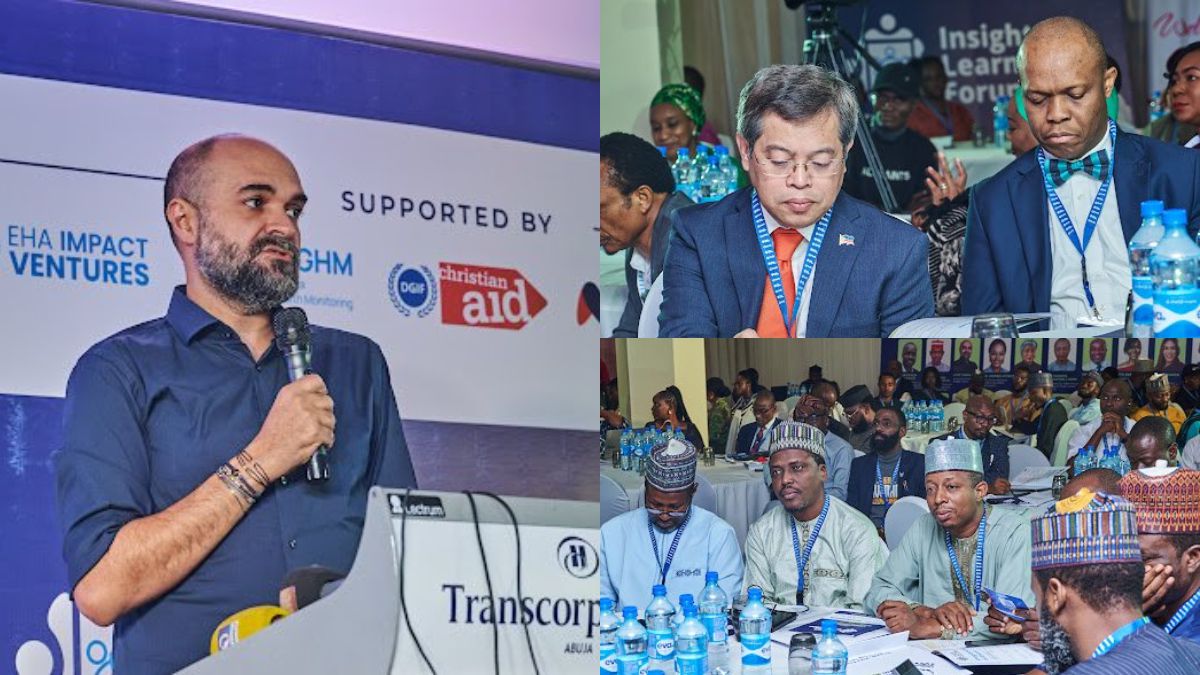
As Nigeria grapples with an overburdened health system and widespread inequities, experts and stakeholders at the 2025 eHealth Africa Insights Learning Forum (ILF) in Abuja sounded a clarion call: digital health is no longer optional; it is survival.
Held on Wednesday, July 30, the ILF brought together policy-makers, innovators, development partners, and healthcare professionals.
At the centre of discussions was a shared belief that digital technologies hold the key to reversing Nigeria’s dire maternal and newborn mortality rates and ensuring universal health access.
Dr. Muntaqa Umar-Sadiq, National Coordinator for the Sector Wide Approach, emphasised that Nigeria has made significant strides in digital health architecture, but efforts remain fragmented.
“The government has advanced significantly when it comes to developing a digital health architecture, and the standards passed by our national council on health.
“What we need now is consensus to defragment the siloed digital health initiatives currently in place,” he noted.
From Innovation to Impact
Atif Fawaz, Executive Director of eHealth Africa, reflected on the ILF’s evolution.
“It started as a simple webinar. But year by year, we’ve seen growth in both interest and commitment from partners and government,” he said.
He stressed that building strong partnerships remains crucial for the push to make the digital healthcare system a core part of Nigeria’s health sector.
“We only believe in partnerships with government to get things done. They have the vision; we as implementers have the mandate. This is not a client relationship, it’s a collaboration.”
The recent tripartite agreement between eHealth Africa and the Kano State Government was highlighted as a model.
“Signing that agreement opens the road for honest conversations. It allows us to understand what’s required and where we can help,” he said.
Technology to the Rescue
For Dr. Ifunaya Ilodibe, CEO of EHA Clinics, the theme of the ILF, Local Investment for Connected Communities, is more than timely; it’s essential.
“Health equity starts at the community level. I always say, ‘we are not well until all of us are well’. “It’s not just about fancy clinics in Abuja or Lagos.
“It’s about training community health extension workers with digital tools to drive access and improve outcomes,” she said
Beyond Donor Dependency
Director of Partnerships, Ota Ahigbe, explained eHealth in simple terms: “It’s leveraging technology to accelerate healthcare—things like electronic health records, digital planning tools, or improved delivery of medical supplies.”
She highlighted the need for local investment and accountability to sustain innovations.
“External funding has helped a lot. But for real impact, we must build local ownership. That means investing in our own ideas, systems, leadership, and usage.”
On Nigeria’s capacity to drive digital healthcare, she remarked: “We have some of the brightest minds and most innovative ideas. While we may still have gaps in human resources, partnerships are helping us bridge them.”
The 2025 eHealth Africa Insights Learning Forum underscored the urgent need for Nigeria to embrace a digital-first approach in healthcare delivery, not as a luxury but as a critical necessity.
With expert voices echoing a unified message, from the scarcity of doctors to the potential of community-based digital tools, the consensus is clear: sustainable healthcare solutions must be locally led, technologically driven, and widely accessible.
As Nigeria stands at a pivotal crossroads, the path forward lies in turning innovation into action, forging stronger partnerships, and investing boldly in a digital healthcare future that leaves no community behind.
